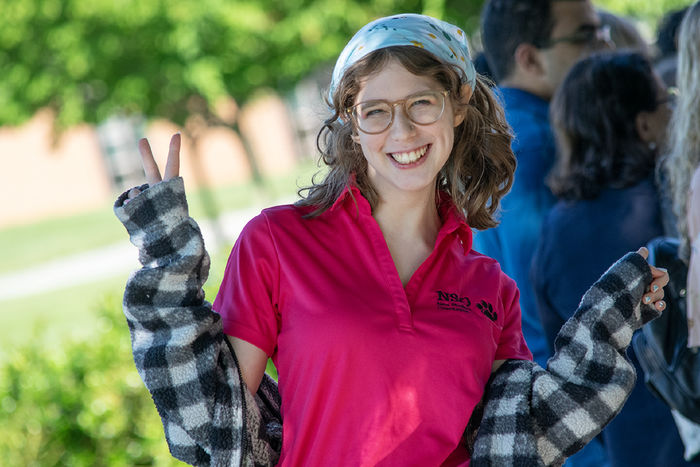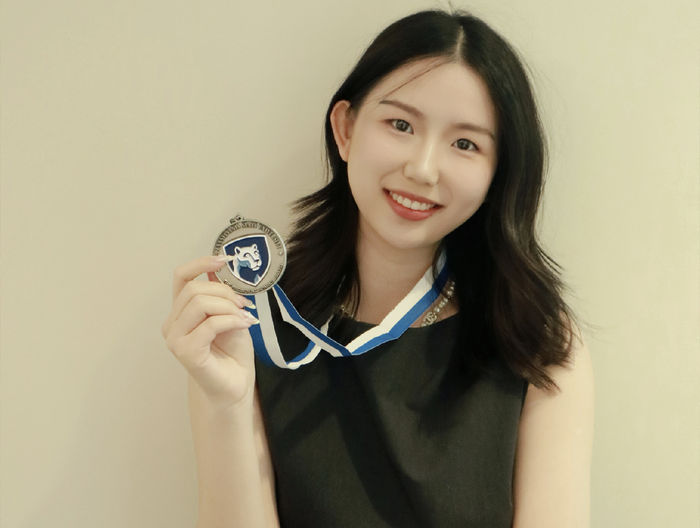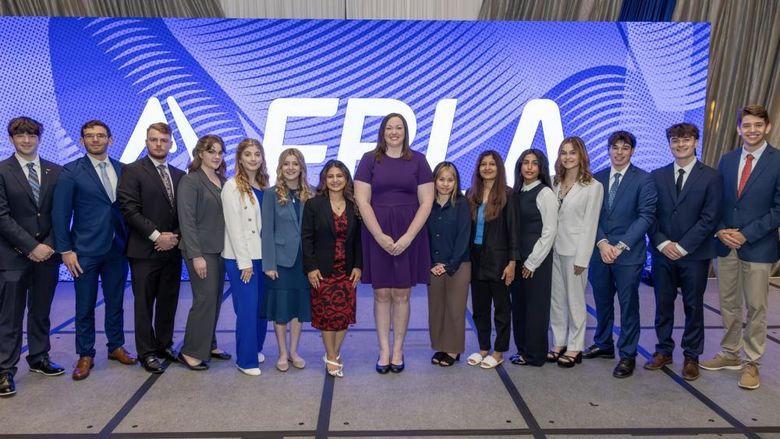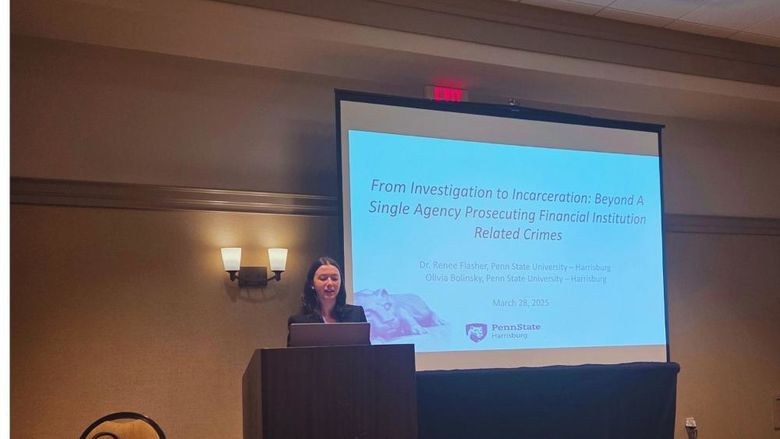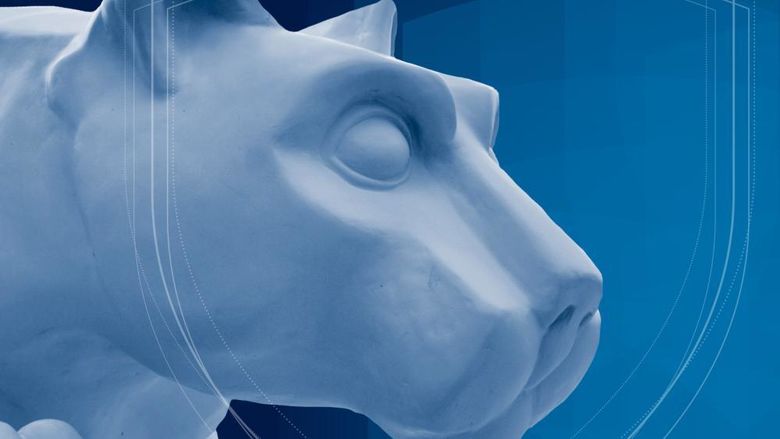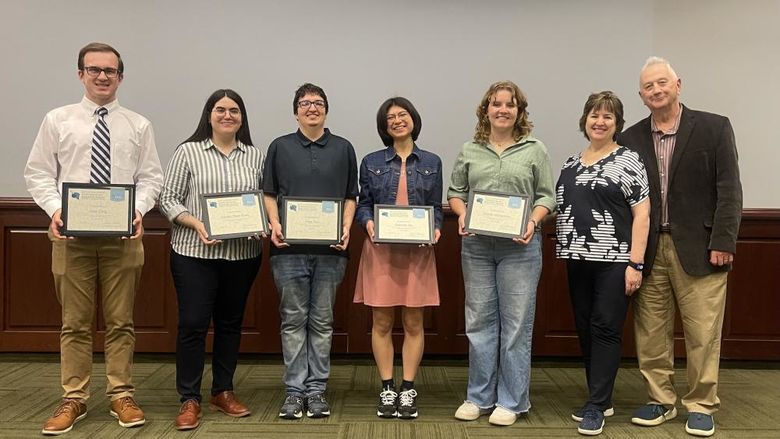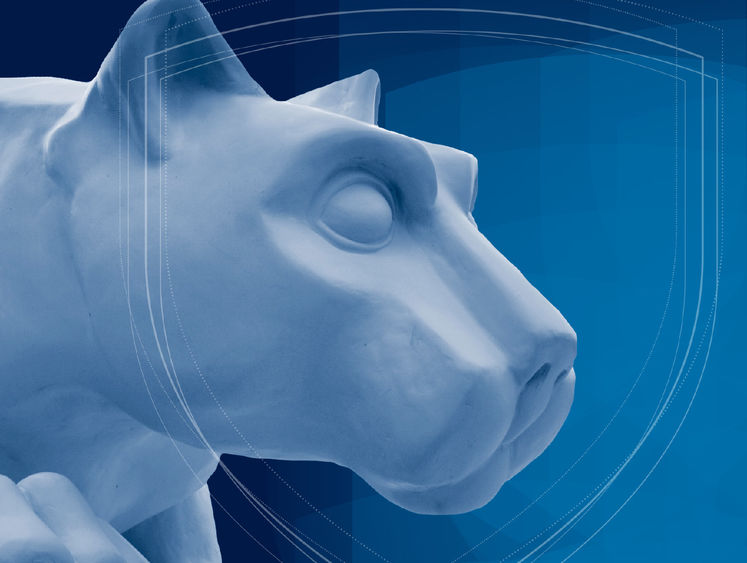
MIDDLETOWN, Pa. — At Penn State Harrisburg, students have an extra resource to turn to for help with basic advising questions — their fellow peers. Lion Guide Peer Advisers are students trained to help their fellow students with a host of basic advising and advising technology questions — making advising services more accessible and ensuring they are better utilized.
The Lion Guides Peer Advising program, started in 2017, aims to increase the capacity of the Lambert Undergraduate Advising Center — freeing the professional advisers to provide the higher-level, in-depth guidance that is critical to student success, while the Lion Guides can support students on a range of other questions, according to Jessica Mosley, assistant director of the advising center.
The Lion Guides help their peers schedule appointments; develop initial schedules using the “what if” report and suggested academic plans; answer frequently asked questions; and refer students to other campus resources. They can also help with exploratory questions about academic paths. The program has grown from five peer advisers at its start to eight today.
Mosley said there’s an increasing need for high quality academic advising, and today’s students also expect on-demand services that are more accessible and engaging.
“The Lion Guides Peer Advising Program seeks to adapt to this climate by preparing student leaders to support their peers in the beginning steps of the advising process,” she said. “Peer advisers help students ‘humanize’ university services and increase students’ utilization of these services.”
The peer advisers are trained in an initial orientation which covers the roles and responsibilities of a peer adviser, communication skills, and advising techniques related to answering academic scheduling questions, and they receive additional development opportunities throughout the academic year.
Psychology major Abigail Young was led to the role after she enjoyed working as a New Student Orientation (NSO) leader and her supervisors suggested her for a peer adviser role.
“My favorite part is getting to work with so many great people,” Young said. “The students are so kind, and the people in the office are so welcoming and helpful. I also like being able to share things that I’ve learned over my time at Penn State Harrisburg with other students who don’t have the same resources I did or just need some extra support navigating the system.”
Young said she thinks students sometimes feel more comfortable asking their peers questions.
“It feels less intimidating and more like a conversation,” she said. “Since we’ve recently gone through similar experiences, like picking classes, figuring out transfer credits, or navigating LionPATH, we can explain things in ways that make sense from a student’s perspective.”
It builds trust, she said, and helps students feel supported.
Yingxin Liu, who is studying criminology, said she initially wanted to be a peer adviser because she thought it would be meaningful for the Harrisburg campus to have someone who spoke Chinese in the advising office.
“Many international students around me struggled with communication, often misunderstanding the information or not being able to clearly express their concerns, which caused delays and frustration,” she said. “I hoped I could serve as a bridge to help students resolve issues more efficiently.”
She said many students like talking to peer advisers because their knowledge comes from real student feedback and firsthand experience. Some students also feel a power gap with professors or advisers, she said, and some, because of their culture, may keep a respectful distance.
“They treat us more like friends, openly sharing their concerns — like not wanting to take an early class or hearing that a certain professor is too strict,” she said.
Accounting major Kamila Martinez said she’s a first-generation college student, so she had to navigate a lot of college subjects like financial aid on her own.
“I think the benefit (of having peer advisers) is the flexibility. Obviously, advisers only have so many slots open because they have a really wide range of students who they have to see,” Martinez said. “It’s a very useful tool for students who have basic questions like: Does this schedule make sense?”
Martinez always recommends the University Bulletin and the “what if” report for students as useful resources. In some cases, the peer advisers try to provide tools to help students figure out their question, and then the students can meet with their professional adviser for a more in-depth conversation.
She tells students they should stop by with questions about anything — if the peer advisers don’t know the answer, they’ll help find out who does.
“It’s very approachable,” she said. “A lot of students do come in during a stressful time. Realistically, your classes aren’t the only things going on. You really never know all the facets of someone’s life. So, we try to make it very welcoming.”
